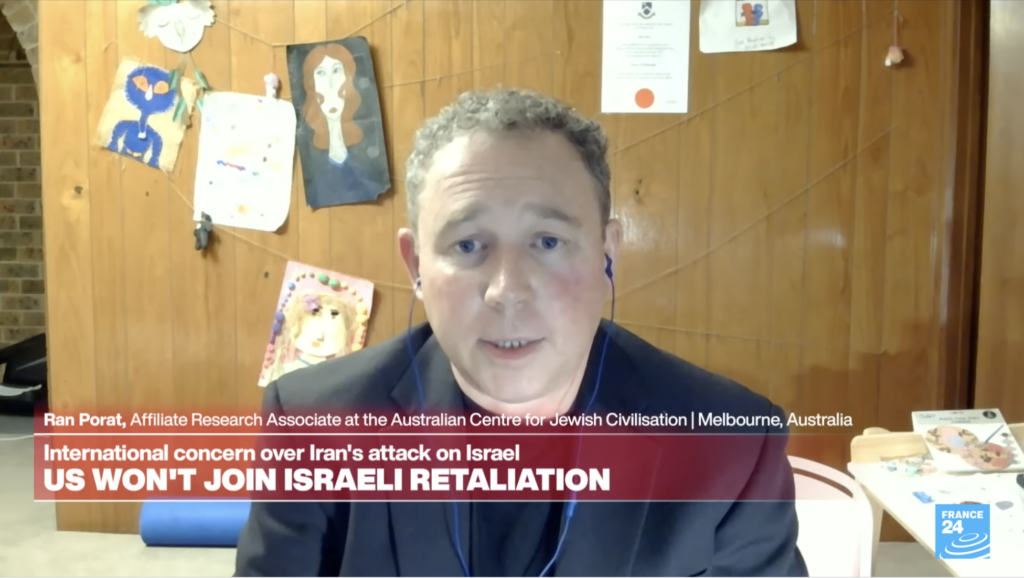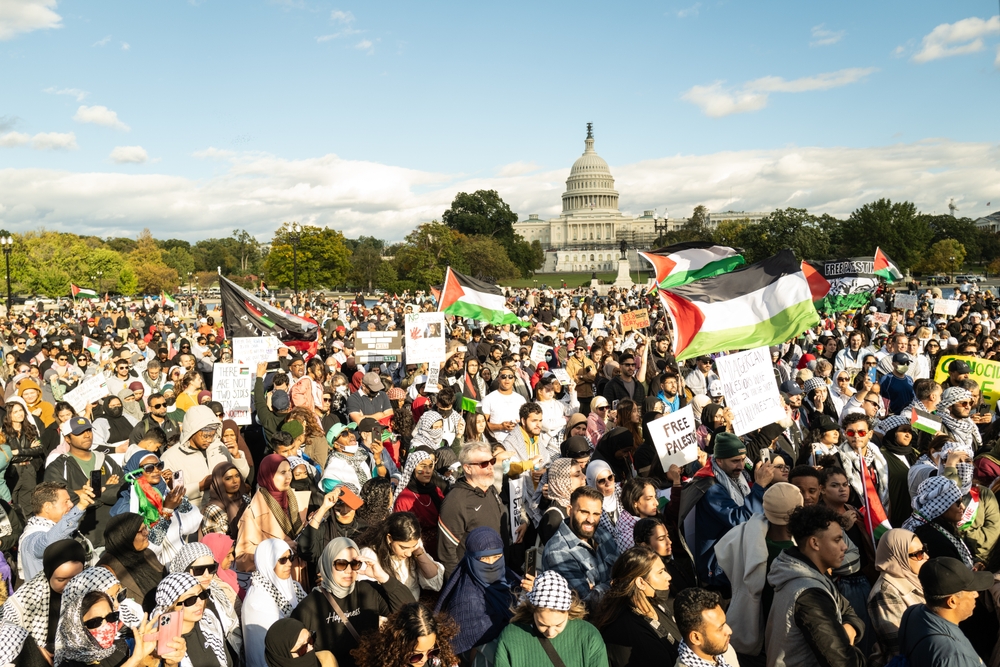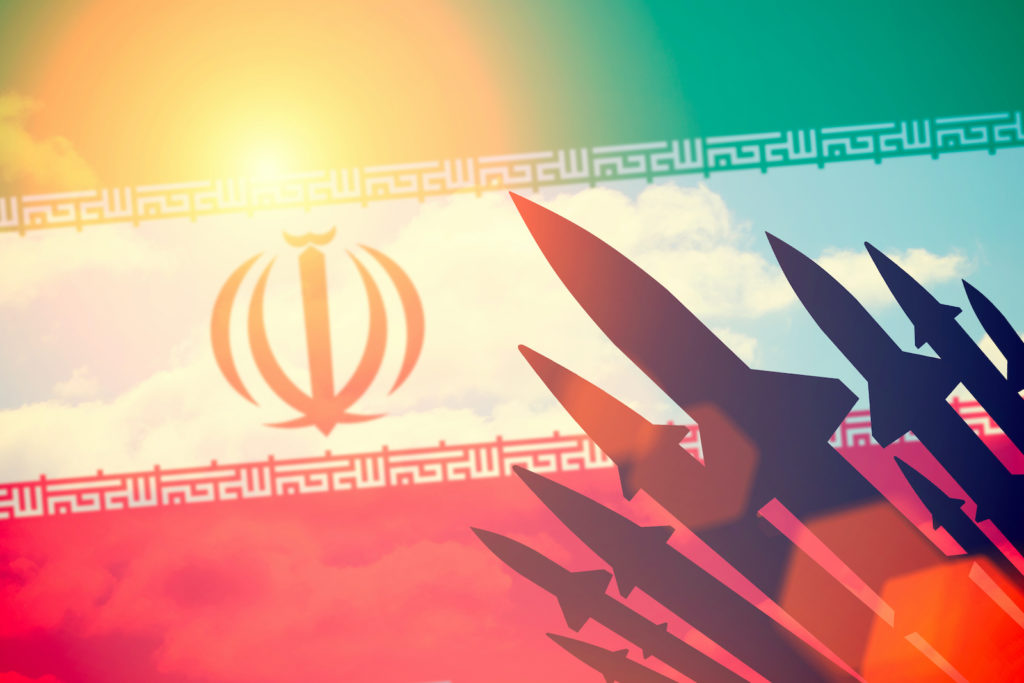UPDATES
The Sinai “Badlands”
Aug 15, 2011 | Tzvi Fleischer and Daniel Meyerowitz-Katz

This blog has been following events in Egypt over the past few weeks, as the Islamist groups seem to have been becoming far more assertive, resulting in increased weapons smuggling to Hamas in Gaza and, potentially, a cosier relationship between Egypt and Iran.
The Sinai Peninsula, inhabited mostly by various Bedouin tribes, sits between the Egyptian heartland and the Israeli border, and has long been an area which the central Egyptian government has struggled to fully control. Smuggling from Sinai into Gaza has been a constant source of Israeli-Egyptian disagreement over recent years, with Israel urging Egypt to make greater efforts to prevent this, and Egyptian efforts in this regard fluctuating.
Unfortunately, as Alex Joffe has observed in Jewish Ideas Daily, recent events in Sinai following the Egyptian have been far from encouraging.
In July, the natural-gas pipeline across the Sinai from Egypt was blown up for the fifth time this year, causing major disruptions to both the Israeli and Jordanian economies. Unidentified gunmen also attacked a police station in the northern Sinai town of El-Arish, leaving five dead. Egyptian authorities were quick to assert that the attackers were waving black flags and carrying the Quran.
This surging unrest has serious implications for Israel, and not just because of the hundreds of thousands of Israeli tourists travelling each year to Sinai in spite of official warnings of possible terrorist attacks. The Egyptian authorities and some outside observers periodically attribute the escalating unrest to al-Qaeda. Given earlier evidence for Hizballah squads in Sinai, and the frequent official Israeli alerts imploring citizens to return, there is little doubt that the security vacuum is allowing more Islamists groups to operate in the region. A recent video posted by “al-Qaeda of the Sinai Peninsula” (most likely Palestinian Salafis opposed to Hamas) demonstrates the power of the al-Qaeda name, if nothing else.
Joffe describes the traditional attitude and pre-occupations of the independent-minded Bedouins, who have historically made making money for their tribe and preserving their indepenence their main priority. He then describes the violence and lawlessness that is currently pervading the Peninsula, allegedly dominated by what amounts to a “Bedouin mafia” now unchecked by Egyptian security services.
Further attracting Egyptian ire was the willingness of Bedouin smugglers to transport weapons to Hamas in Gaza, smuggle drugs to Israel, and engage in human trafficking of African refugees. In recent years, relations have been poisoned by accusations that Egyptian security officials tortured and murdered Bedouin suspects.
But now the Egyptian security presence has dramatically diminished. One immediate consequence is that arms struggling across Sinai into Gaza, a longstanding problem and an enterprise in which the Bedouin have historically played a central role, has intensified. More arms, including heavy weapons and explosives from, allegedly, as far away as Libya, have been transported to Gaza. After the pipeline bombing in February, Egypt received permission from Israel to modify the terms of their peace treaty and deploy two additional army battalions in Sinai. This has contributed little to the region’s safety. But the recent news that Bedouin have been hired to guard the gas pipeline point to another explanation for at least some of the violence, a protection racket.
Abigail Hauslohner of Time magazine has also reported on how large areas of Sinai have effectively become “badlands”, in which there is no police presence near the border.
Zone C is the last bit of Egyptian territory before the international border with Israel and the Gaza Strip, and it’s a zone where – under a long-standing Egyptian-Israeli peace treaty – only Egyptian civilian police are allowed to conduct security. But it has been months since the police have set foot in these parts. “They’ve all gone home,” laughs Mosaad, a powerful leader of the Tarabin tribe, as he drives past the police station, a Russian machine gun wedged between the front seats of his car….
A local journalist in the town of al-Arish estimates that it may be three to four years before the police force is allowed back into the towns closest to the border. Asked this week why police still hadn’t returned to the area, the Department of Homeland Security’s media chief, Gen. Essam al-Bedawi simply said: “You know why.”
Shortly after the winter uprising, the Bedouin here sent a message to their longtime police foes: stay out of the smuggler havens of Rafah and Sheikh Zweid or they would be killed. “We have two demands,” explains Abu Ahmed. “End the outstanding sentences [against Bedouin], and prosecute the officers who attacked the protesters – both before and after the revolution. And after they do that, I’ll go to them and I will invite them back,” he says. “Until then, they’re forbidden from entering. There’s no other way.”
More analysis on the deteriorating situation in Sinai comes from The Brookings Institute’s Daniel Byman. Writing in Slate, Byman points out that, for all their flaws, the authoritarian regimes in Jordan and (until recently) in Egypt have been able to clamp down on terrorism and maintain a lasting peace. That said, this seems to be changing.
Islamist activists, including former jihadists, now enjoy free rein in Egypt. When Mubarak fell, many among the thousands of jihadist prisoners, including some of those convicted in the assassination of Anwar Sadat, were freed. Some of these radicals entered politics and are now calling for Egypt to look to Saudi Arabia as a model for its society… A new government in Cairo may not stop weapons and, especially, fighters from going back and forth to Gaza. Fundraising and generating propaganda from Egyptian soil may also encounter little interference.
Finally, Barry Rubin has taken a very grim view of Egypt’s future. In his prediction, the current unrest in the Sinai is only the beginning of the violence to come, as the end of Mubarak’s security operations cause the Islamist groups in Egypt to find their message increasingly well received and the security forces, increasingly unwilling to take serious steps to deal with violent terrorist groups. This, he argues, is already leading to higher levels of terrorism, which are likely to grow further.
As I’ve predicted since February, a major consequence of the Egyptian revolution and the rise of radical Islamism there will be a return to the terrorism of the 1990s which destroyed the tourism industry; targeted Christians; murdered moderates and secularists; and killed government officials and bystanders.
Now a group has attacked two police stations in el-Arish. And of course CNN misses the point. Those responsible, it reports, are, “Takfir-wal Higra, a group sympathetic to al Qaeda’s goal of establishing an Islamic Caliphate.” Actually, the group originated in Egypt long before Usama bin-Ladin began his political activity. And in Egypt, terrorist Islamists come out of the Muslim Brotherhood, demanding faster and more extreme tactics. We will be seeing a lot of such people in the coming months and years….
The first attacks have been against the gas pipeline to Israel, which the government has been “helpless” to stop and against Christians, where the government has often acted vigorously…by arresting the Christian victims.
Whether or not Egypt’s new government decides to maintain the peace treaty with Israel, there are many forces in Egypt that would sooner see the treaty cancelled and will continue to ramp-up violence unless Egypt’s rulers take measures to prevent this. At the moment, this seems unlikely. But violence in both Sinai and against Egypt proper – likely crippling the crucial tourism industry – will probably impact both Israel’s security and Egypt’s future democratic prospects until and unless they do.
Tzvi Fleischer and Daniel Meyerowitz-Katz
Tags: Egypt











